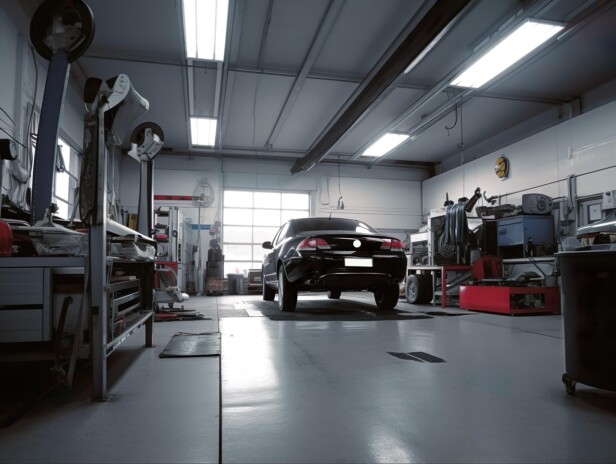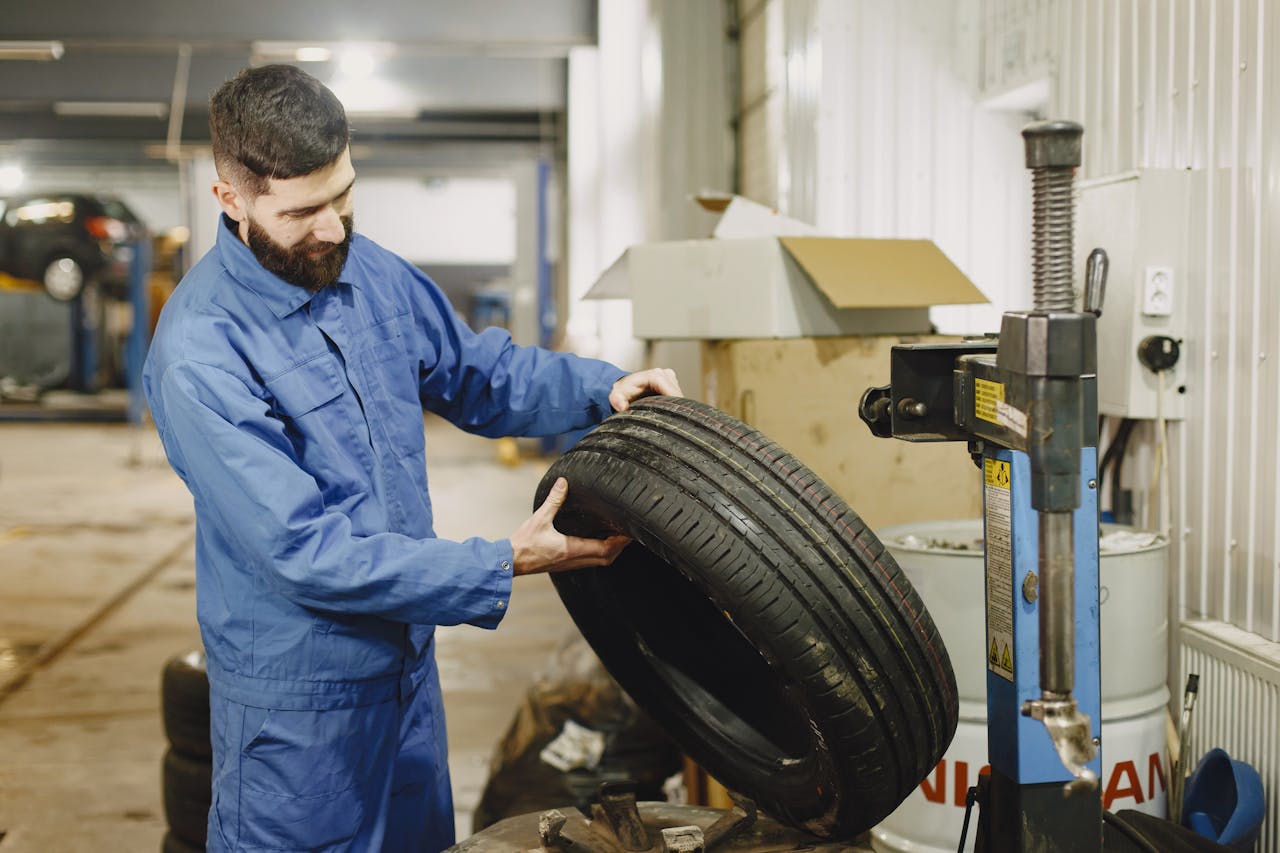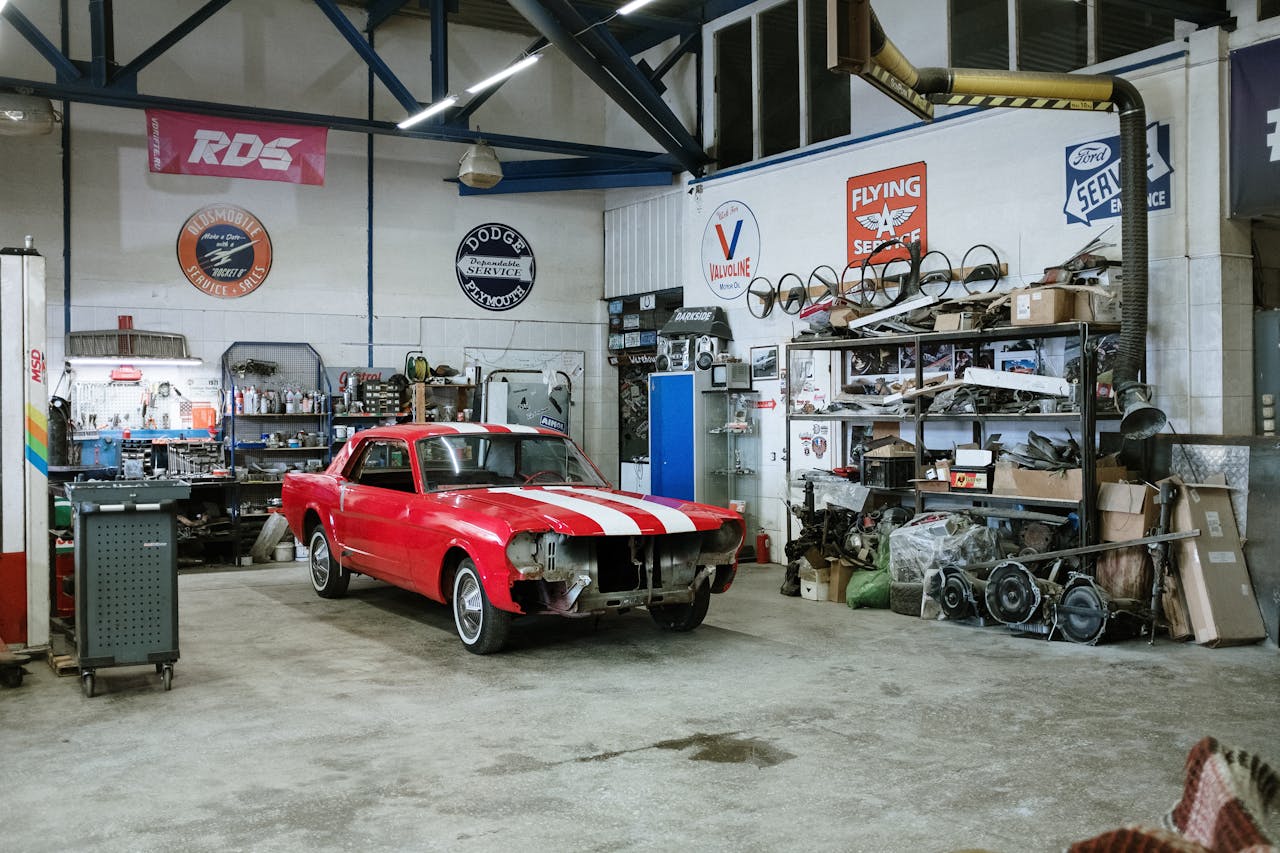Converting a warehouse to an auto repair shop in Fort Worth comes with regulatory hurdles that drive up project costs significantly. The Texas Commission on Environmental Quality mandates air authorization before any construction begins, and the City of Fort Worth Development Services requires a change of use permit for the conversion.
The Dallas–Fort Worth area sits in a nonattainment zone for ozone, which means stricter VOC emissions limits apply to automotive facilities. Fort Worth flex space averages $14–$15 per square foot annually for properties between 1,400–6,300 square feet, affecting your ongoing occupancy expenses alongside the upfront regulatory compliance costs.
Which Fort Worth Permits And Zoning Rules Affect Conversion Costs?
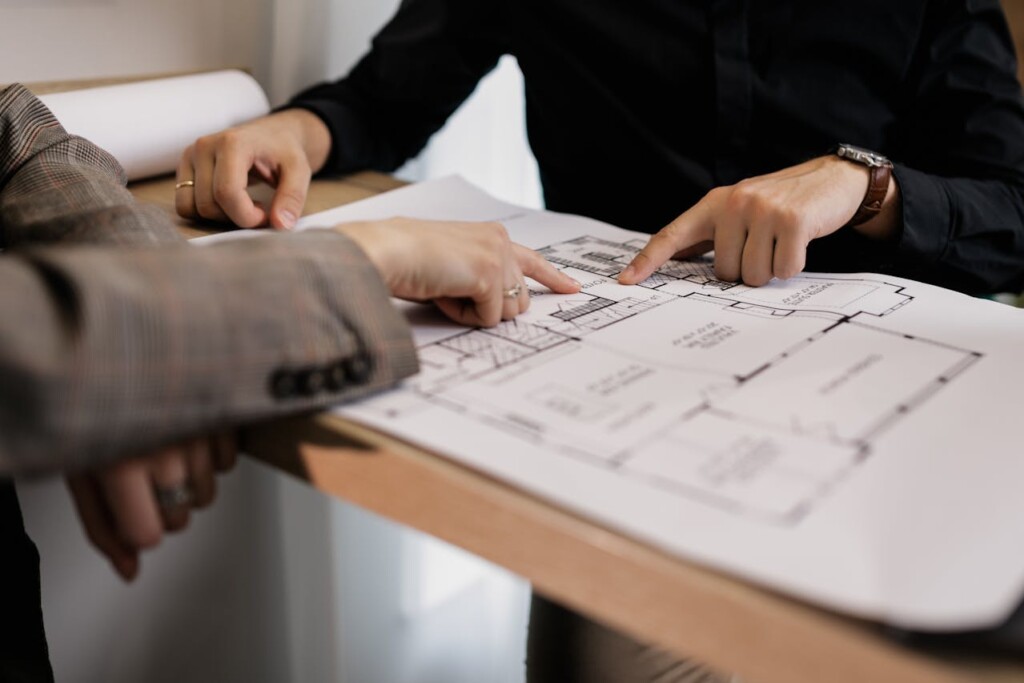
Fort Worth requires a formal change of use permit when converting a warehouse to an auto repair shop. This process involves submitting applications to City of Fort Worth Development Services and paying associated fees for plan review and inspections.
Auto repair operations face specific zoning restrictions in Fort Worth. The city prohibits auto repair facilities in both “ER” (Neighborhood Commercial Restricted) and “E” (Neighborhood Commercial) districts. These zones limit commercial activities to lower-intensity uses like offices, retail stores, and restaurants.
Zoning Verification Should Come First
We recommend conducting zoning verification before making any design commitments or signing lease agreements. This early step prevents costly redesigns when you discover zoning conflicts later in the process.
The City of Fort Worth maintains detailed zoning maps and district summaries that clearly identify which areas allow auto repair operations. Properties zoned “FR” (General Commercial Restricted) and higher-intensity districts typically permit auto repair facilities, but verification protects against assumptions that could derail your project timeline.
Permit Application Process And Timeline Considerations
The change of use application requires property owner authorization, detailed site plans, and compliance with current building codes. Fort Worth charges fees based on the scope of work and site characteristics, with additional costs for plan reviews and required inspections.
Schedule adequate time for the permit review process, as applications involving change of use typically require more extensive review than simple renovations. The city may require updated fire safety systems, ADA compliance improvements, or structural modifications depending on the age and condition of the existing warehouse structure.
Plan for multiple inspection phases throughout construction, including intermediate inspections for electrical, plumbing, and mechanical systems before final occupancy approval. Each inspection phase carries associated fees and potential delays if corrections are needed.
What Texas Air And Environmental Authorizations Are Required Before Construction?
Texas law mandates that any facility potentially emitting air pollution must secure proper authorization before beginning construction or modification. We approach this systematically to ensure compliance from project inception.
The Texas Commission on Environmental Quality requires facilities to qualify under one of three pathways. You must either meet de minimis thresholds, obtain a permit by rule (PBR), or secure a State Air Quality Permit before breaking ground.
Common Permit By Rule Categories For Auto Shops
Most auto repair operations qualify for specific permits by rule under Title 30 TAC 106. Parts degreasers fall under PBR 106.454, covering remote reservoir and cold solvent cleaners with specific design and operating requirements. Manual equipment operations like grinding or buffing utilize PBR 106.265, which covers handheld processes generating minimal air pollution.
Used oil burners qualify under PBR 106.181, allowing on-site burning of generated used oil or oil from household generators. Heat-cleaning devices require PBR 106.495 along with Form PI-7 submission, controlling both materials baked off engines and fuel types used.
Surface coating and painting operations typically need PBR 106.433. This permit specifies allowable paint types, coatings, and applications. Outdoor or open-area coating requires written TCEQ site approval, and depending on paint and solvent volumes, you may need to submit Form PI-7 CERT.
Additional common permits include steam cleaning under PBR 106.411, acid-bath cleaning for parts or radiators under PBR 106.375, and fuel dispensing under PBR 106.412. Welding, soldering, or brazing operations fall under PBR 106.227, while comfort heating systems use PBR 106.102.
State Air Quality Permits For Complex Operations
Facilities that cannot qualify for de minimis status or permits by rule must obtain a State Air Quality Permit. This process requires submitting Form PI-1, paying applicable fees, providing detailed process information, and posting public notice. The permitting timeline extends project schedules, making early application critical.
Public participation requirements can add complexity. Depending on location and emission levels, public hearings may be required for affected parties to comment on permit applications.
Dallas-Fort Worth Nonattainment Area Requirements
The Dallas-Fort Worth region’s ozone nonattainment status creates additional compliance layers. VOC limits apply regardless of permit type, affecting coating selection and application methods. These restrictions influence equipment choices and operational procedures.
Gasoline dispensing operations may trigger vapor recovery requirements under NESHAP for Halogenated Solvent Cleaners if using specific solvents. Recovery systems add upfront costs but ensure regulatory compliance.
General Air Quality Compliance
All facilities must follow general air regulations regardless of permit type. Nuisance provisions prohibit emissions that adversely affect human health, animal life, or property enjoyment. Visible emissions restrictions require proper equipment maintenance and operation.
Good housekeeping practices form the foundation of compliance. We maintain equipment according to manufacturer specifications, clean up spills immediately, and keep pollution-control systems in proper working order. These practices prevent violations and reduce long-term operational costs.
The SBLGA hotline at 800-447-2827 provides confidential assistance with permit determinations and compliance questions. Early consultation helps avoid costly redesigns and schedule delays during the conversion process.
How Do Waste, Tanks, And Wastewater Rules Impact Design And Operating Costs?
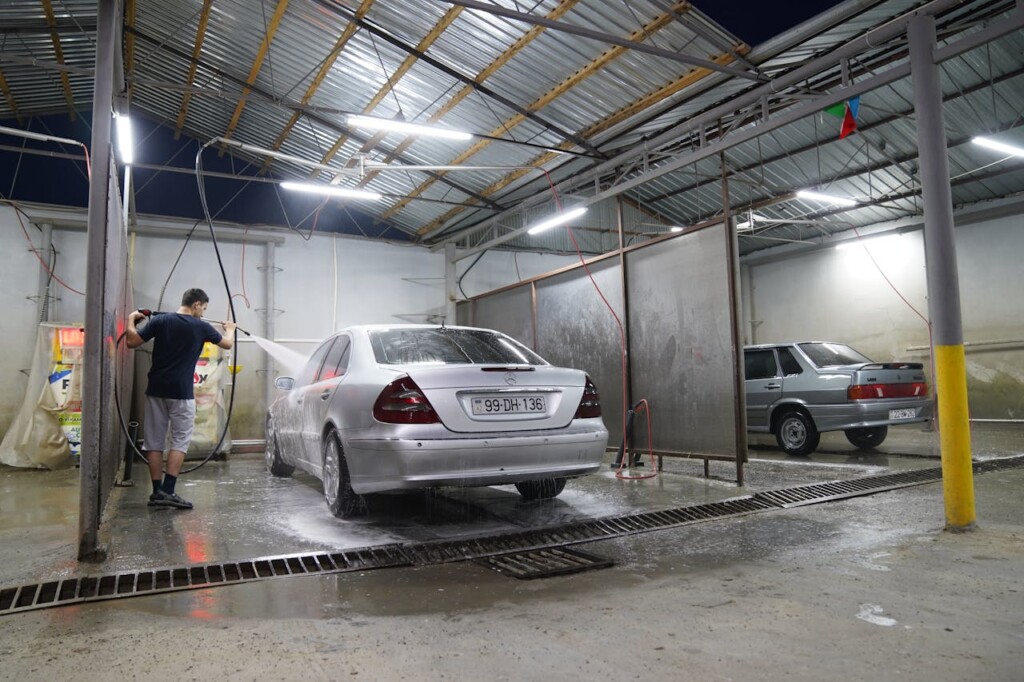
Hazardous Waste Management Requirements
We determine each waste stream and assign appropriate Texas Waste Codes to establish proper handling protocols. Auto shops generate various hazardous materials that require specific classification and management procedures.
Your hazardous waste generator status affects both operational costs and regulatory obligations. Monthly generation amounts determine whether you qualify as a Conditionally Exempt Small Quantity Generator (CESQG), Small Quantity Generator (SQG), or Large Quantity Generator (LQG).
Container labeling requires “Hazardous Waste” markings with accumulation start dates and contents identification. We maintain proper spacing by keeping ignitable or reactive wastes at least 50 feet from property lines to meet safety requirements. All hazardous waste transport requires registered transporters and hazardous waste manifests for compliance tracking.
Automotive-Specific Waste Streams
Used oil and used oil filters require dedicated storage in properly labeled containers maintained in good condition. Spill control measures protect surrounding areas while registered processors and transporters handle disposal. Small quantity self-transport remains permissible within regulatory limits.
Lead-acid battery management focuses on recycling and spill prevention. Registration becomes mandatory only when facilities engage in reclamation activities rather than simple collection and disposal.
Scrap tire regulations apply when storage exceeds specific thresholds. Facilities storing over 500 tires outdoors or over 2,000 enclosed tires must register as generators. We use TCEQ Form 10304 scrap-tire manifests with registered transporters for proper disposal chains.
Antifreeze requires testing for hazardous characteristics before disposal decisions. Recycling programs reduce disposal costs when materials meet reprocessing standards.
Wastewater Discharge Planning
We conduct hazardous determinations for all wastewater streams before establishing discharge methods. Nonhazardous wastewater requires written permission for discharge to a publicly owned treatment works (POTW) or TCEQ permits for direct discharge to state waters.
Septic systems handle only domestic wastewater and must meet TCEQ construction and operation standards. Auto shop process wastewater typically requires alternative treatment or disposal methods due to contamination potential.
Storage Tank Regulatory Framework
Underground Storage Tanks (USTs) and Aboveground Storage Tanks (ASTs) carry registration, installation, release reporting, and record-keeping obligations that affect facility design costs. ASTs storing petroleum products over 1,100 gallons fall under regulatory oversight.
We implement spill reporting procedures and maintain comprehensive records for all tank systems. Proper installation requires certified contractors and inspection protocols that add to initial construction costs but prevent costly violations and environmental damage.
Tank placement affects facility layout since regulatory setbacks and secondary containment requirements influence building design. Early planning prevents costly relocations during construction phases.
What Market And Lease Factors In Fort Worth Affect The Budget?
Fort Worth lease rates directly impact your project’s long-term financial performance. We see flex spaces in this market averaging $14.00 to $15.00 per square foot per year for properties ranging from 1,400 to 6,300 square feet, according to LoopNet data. These rates represent the baseline occupancy cost that continues throughout your lease term.
Size and availability create significant budget variations. Smaller spaces in the 1,400 square foot range often command premium rates due to limited inventory. Larger properties approaching 6,300 square feet may offer better per-square-foot value but require higher total monthly commitments. We factor these dynamics into our construction scheduling to align tenant improvements with optimal lease timing.
Market conditions in Fort Worth’s industrial corridors influence both availability and pricing. Properties with existing automotive-friendly features like drive-in doors, heavy electrical service, or concrete floors suitable for lifts command higher rents but reduce our conversion costs. The total occupancy cost calculation must include base rent, operating expenses, and any additional fees for specialized automotive use.
We integrate lease terms into comprehensive project budgeting alongside regulatory compliance costs. Triple-net lease structures shift property taxes, insurance, and maintenance expenses to tenants. These ongoing costs can add 20 to 30 percent to base rent rates. Early lease negotiations allow us to coordinate construction timelines with occupancy dates, avoiding dual rent payments during the conversion period.
Conclusion And A Simple Budgeting Checklist
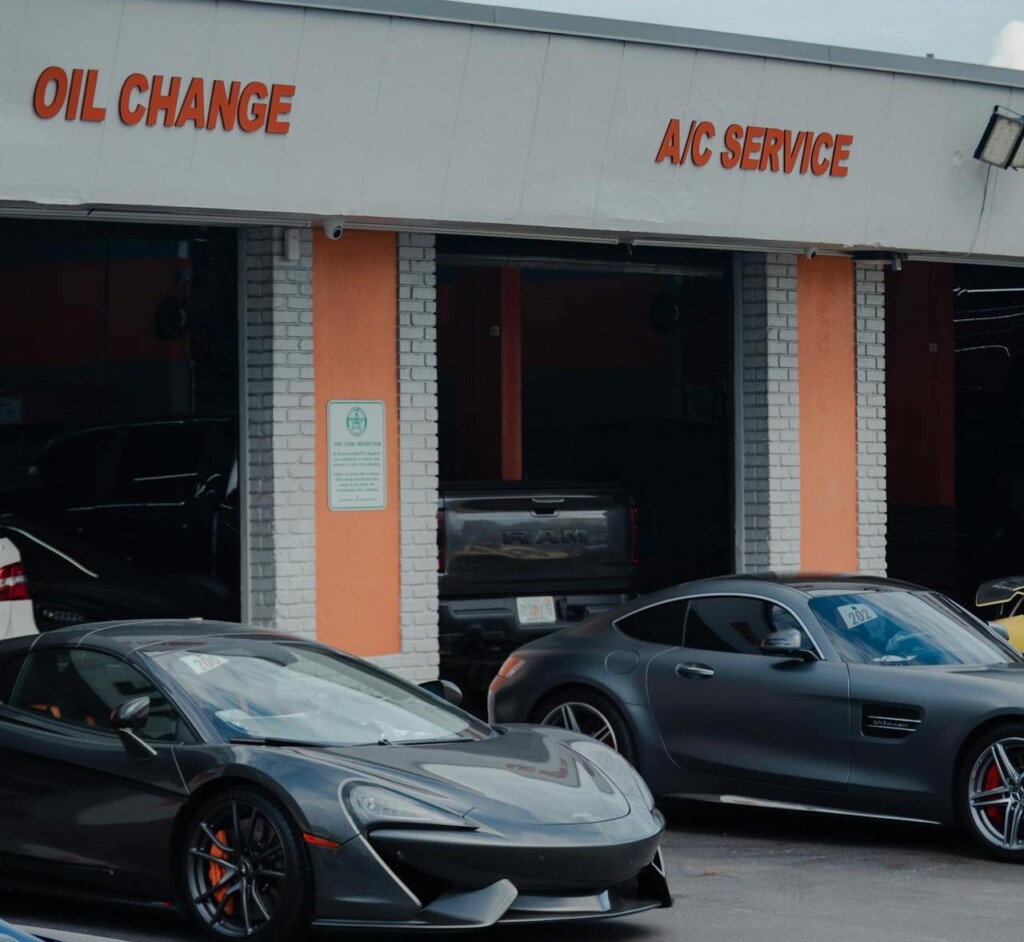
We see developers and property owners face complex decisions when converting warehouses to auto repair facilities in Fort Worth. Success depends on methodical planning that addresses each regulatory layer and budget component. The most effective approach starts with zoning verification, moves through permit coordination, and builds in ongoing compliance from the beginning.
Our experience shows that projects stay on budget when owners tackle zoning confirmation first. Auto repair operations cannot proceed in Fort Worth’s ER and E districts, so location verification prevents costly site selection errors. Plan your Fort Worth change-of-use permit early in the process, allowing time for building and zoning plan review plus required inspections from multiple departments. Secure TCEQ air authorization before any construction or modification work begins, whether through de minimis qualification, permit by rule options, or a State Air Quality Permit.
Set up comprehensive waste, tank, and wastewater compliance systems from day one rather than retrofitting later. Include both lease rates at $14-15 per square foot annually and operating costs in your total project budget. Look for available cost relief through programs like Proposition 2 tax exemptions for pollution-control equipment. Maintain detailed records for all permits and compliance activities, and consider voluntary audits under the Texas Environmental, Health, and Safety Audit Privilege Act for additional protection.
Ready to navigate the conversion process with experienced construction guidance? Contact EB3 Construction to discuss your Fort Worth warehouse-to-auto shop project.

